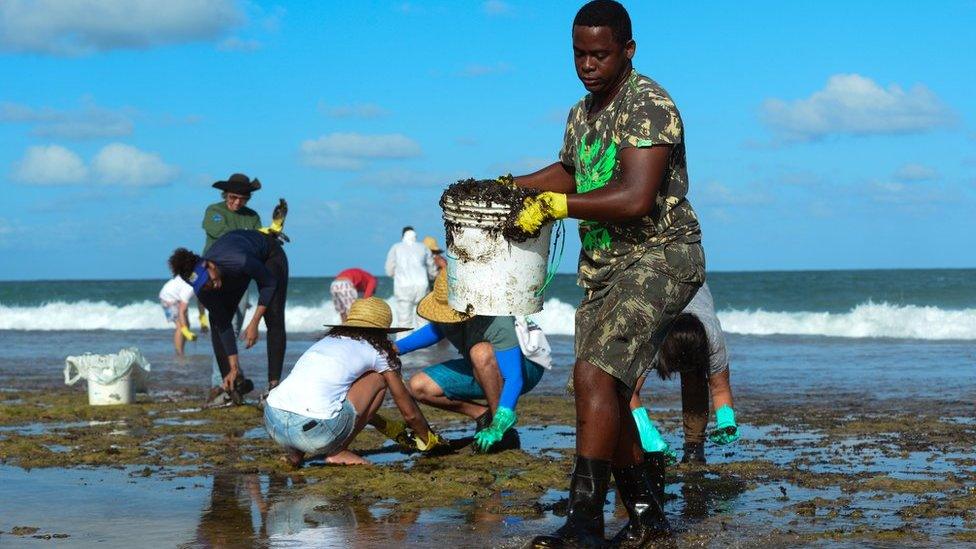Venezuela's National Assembly investigates oil spill
- Published
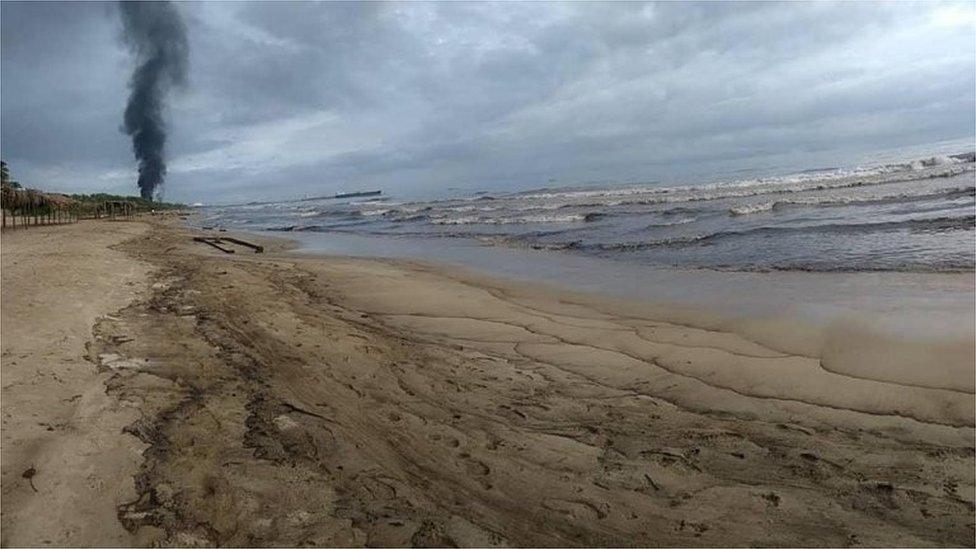
It is not clear when the oil spill happened, but locals first noticed it on 2 August
Venezuela's National Assembly, the only institution which is not controlled by the government, has demanded information on a oil spill which has caused a large slick to be washed up on the shores of Falcón state.
Environmentalists warn that if the oil slick continues to spread, it could damage Falcón's wetlands.
Photos suggest that some beaches in Morrocoy National Park have already been affected.
Little official detail has been given.
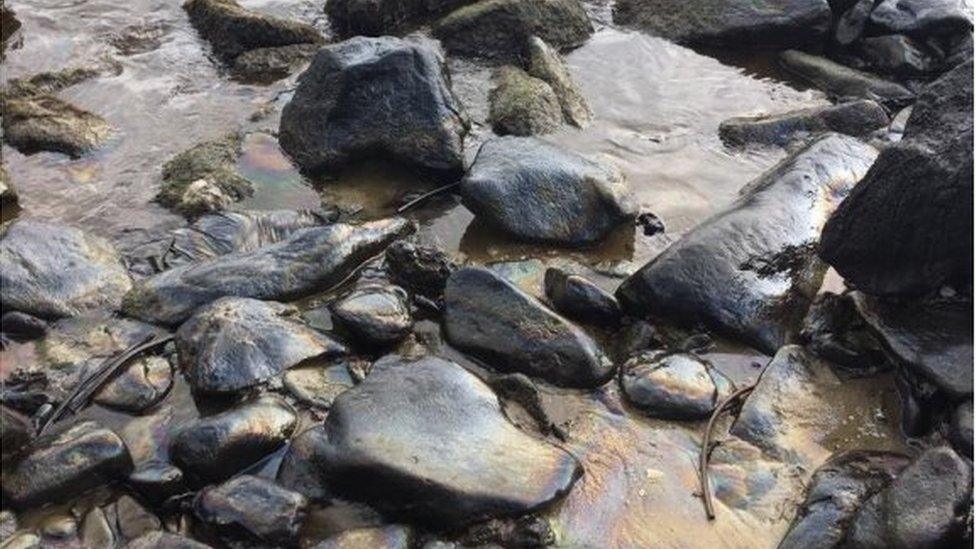
Environmentalists say the beach and rocks are covered by an oily sheen
The government of President Nicolás Maduro has neither provided any information on how big the oil spill is nor said what may have caused it.
Opposition lawmaker María Gabriela Hernández said she suspected that the oil came from the El Palito refinery.
Ms Hernández, who heads the National Assembly's environment commission, demanded that the state-oil company PDVSA give lawmakers access to its maintenance records from El Palito.
PDVSA, a once-powerful oil company, is a shadow of its former self after decades of under-investment and lack of maintenance. Many of its most capable petroleum engineers are among the more than five million Venezuelans who have left the country to escape its political and economic crisis.
It is not clear when the spill may have happened but environmentalists say they first became aware of oil floating in the sea on 2 August.
Venezuela's minister for eco-socialism, Josué Lorca, said 90% of the spilled oil had already been cleared up with the help of 1,200 volunteers.
But environmentalists say one clean-up is normally not enough to remove an oil spill on a beach as more oil is likely to be washed onto the shore with coming tides.
Mr Lorca did not give any information about how much oil may have been spilled but on Thursday he published new photos of the clean-up on Instagram, external and mentioned the appearance of "a new oil slick" in the Golfo Triste area, outside Morrocoy National Park.
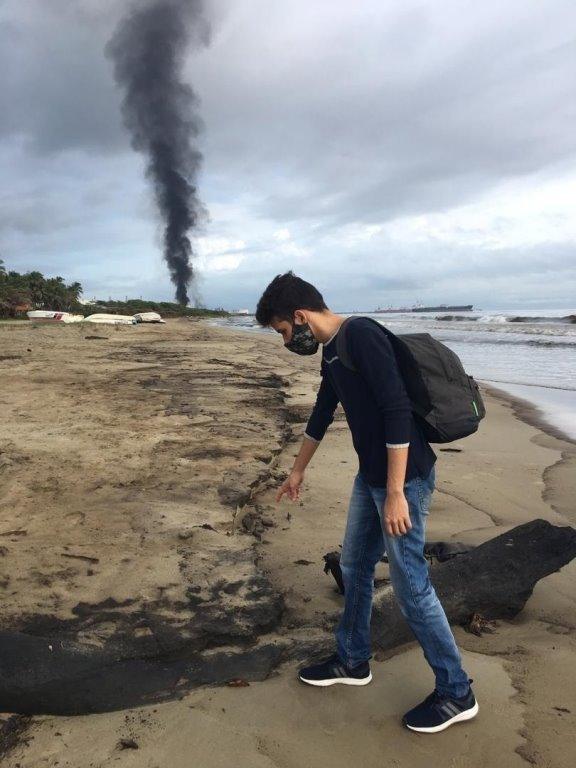

Last year, a huge oil spill hit beaches in north-eastern Brazil affecting a stretch 1,500km long.
Brazil's environment ministry said at the time that testing showed that it's "very likely from Venezuela".
- Published1 November 2019
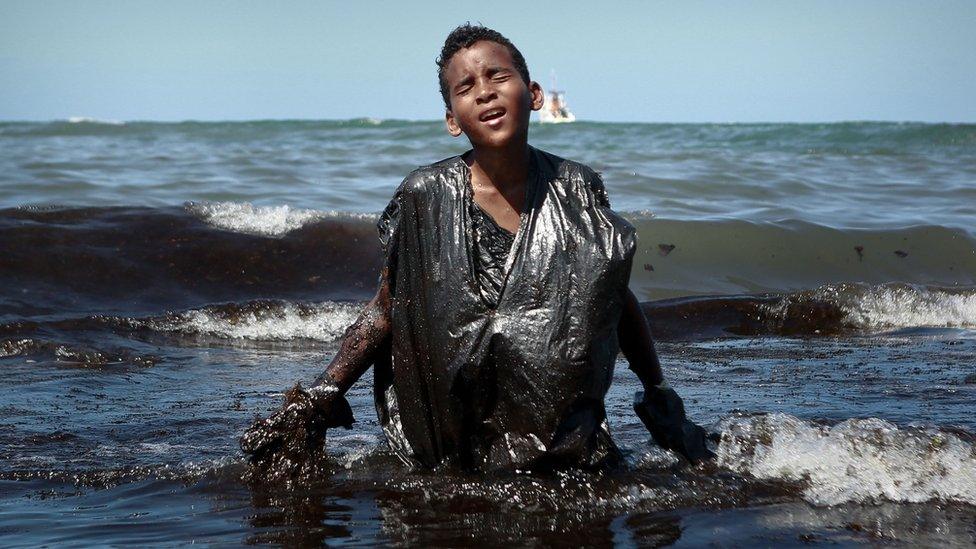
- Published20 October 2019
